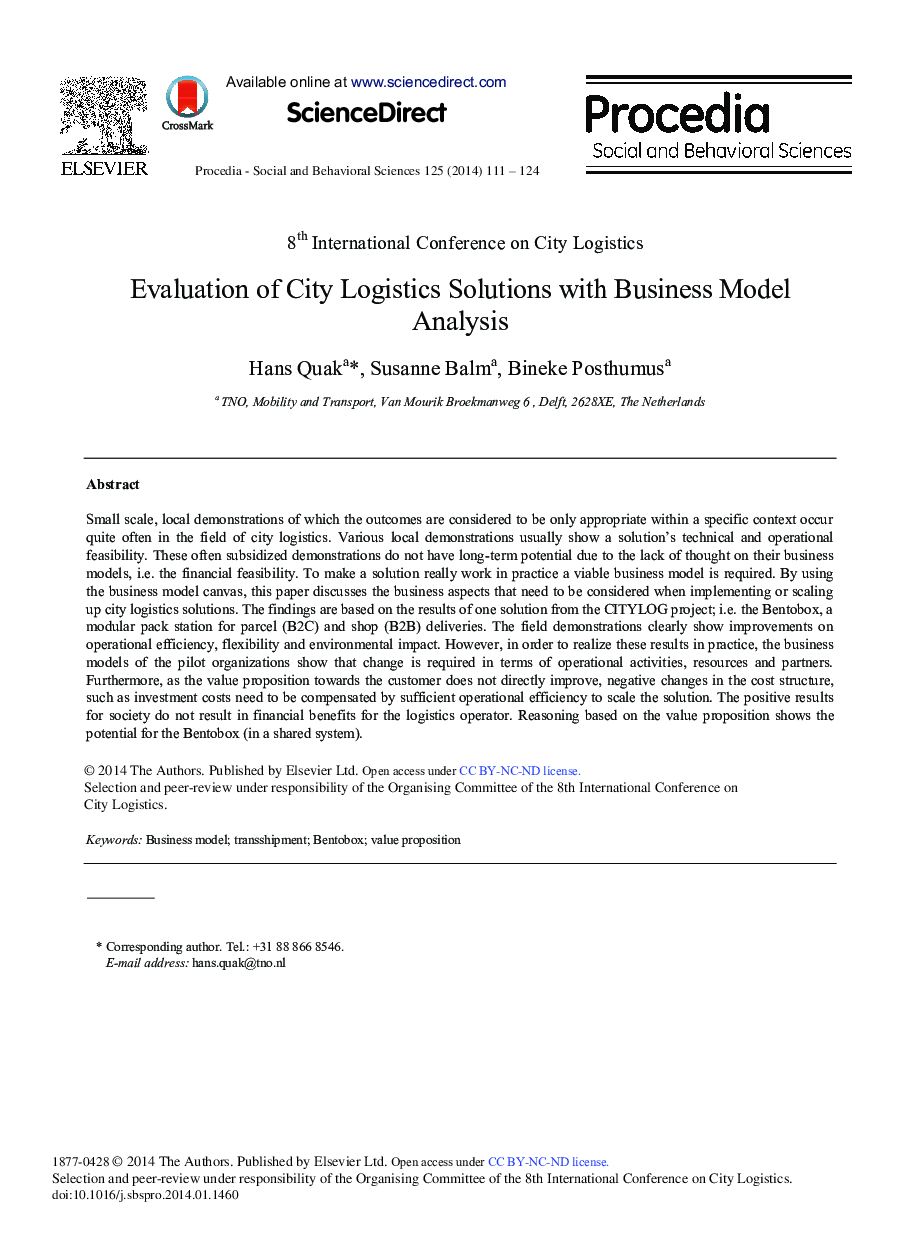| Article ID | Journal | Published Year | Pages | File Type |
|---|---|---|---|---|
| 1113979 | Procedia - Social and Behavioral Sciences | 2014 | 14 Pages |
Small scale, local demonstrations of which the outcomes are considered to be only appropriate within a specific context occur quite often in the field of city logistics. Various local demonstrations usually show a solution's technical and operational feasibility. These often subsidized demonstrations do not have long-term potential due to the lack of thought on their business models, i.e. the financial feasibility. To make a solution really work in practice a viable business model is required. By using the business model canvas, this paper discusses the business aspects that need to be considered when implementing or scaling up city logistics solutions. The findings are based on the results of one solution from the CITYLOG project; i.e. the Bentobox, a modular pack station for parcel (B2C) and shop (B2B) deliveries. The field demonstrations clearly show improvements on operational efficiency, flexibility and environmental impact. However, in order to realize these results in practice, the business models of the pilot organizations show that change is required in terms of operational activities, resources and partners. Furthermore, as the value proposition towards the customer does not directly improve, negative changes in the cost structure, such as investment costs need to be compensated by sufficient operational efficiency to scale the solution. The positive results for society do not result in financial benefits for the logistics operator. Reasoning based on the value proposition shows the potential for the Bentobox (in a shared system).
